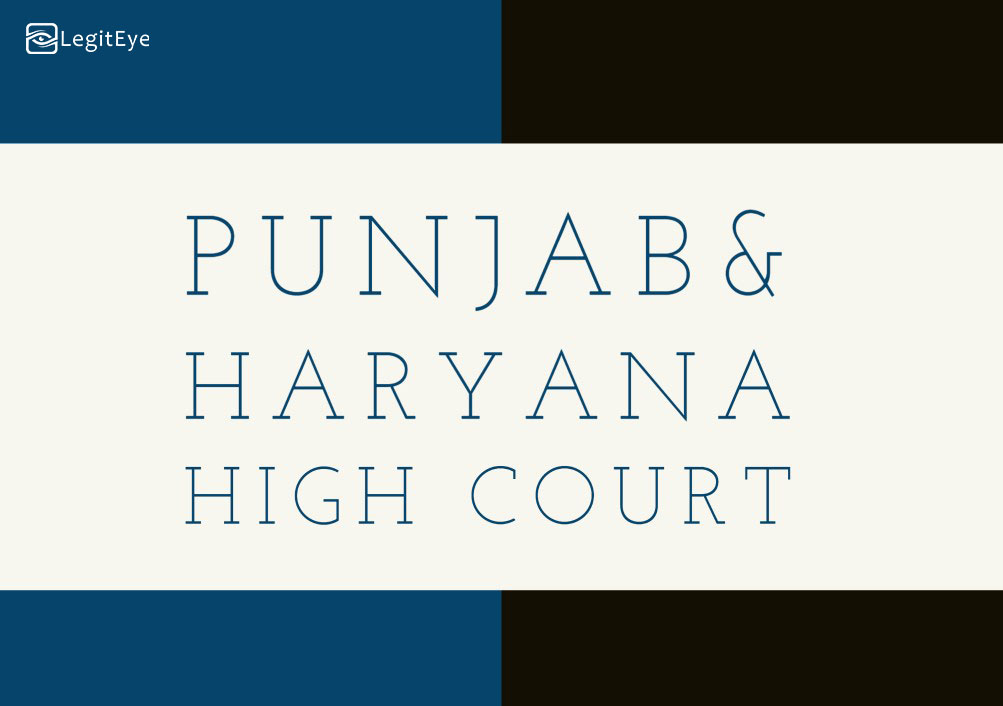Typographical error in power of attorney is not irregularity which would vitiate proceedings: Punjab & Haryana HC

Read Order: Parvin Kumar v. Iqbal Singh Sethi
Monika Rahar
Chandigarh, February 15, 2022: The Punjab and Haryana High Court has held that a typographical error in the power of attorney authorising an advocate to represent a party, is not incorporated as an irregularity that can vitiate the proceedings under Section 461 of Cr.P.C.
Further while looking into the provisions of Section 465 of Cr.P.C. (finding or sentence when reversible by reason of error, omission irregularity), the Bench of Justice Vinod S. Bhardwaj opined that the guiding principles for a Court to examine any alleged irregularity is as to whether such alleged irregularity has occasioned any failure of justice or not.
Adding to the above-mentioned observations, the Bench stated,“The procedural law is handmaids of justice and it is with the said object and purpose that the power has been vested in a Criminal Court under Section 465 Cr.P.C., to examine any order on the parameters as to whether such an order advances or occasions failure of justice.”
In this case, originally the complainant-respondent (Iqbal Singh) filed a complaint under Section 138 of the NI Act against the accused-petitioner. Before the Trial Court, the complainant was represented by Sh. R.D.Vinayak, Advocate (the Advocate) at the stage of his appearance before the court; during the time of issuance of summons to the accused; while examining the witnesses and placing the matter for defence evidence.
In July 2019, the accused-petitioner filed an application to not allow Sh. R.D.Vinayak to cross-examine defence witnesses on the ground that he was not authorized to represent the complainant as he filed a power of attorney in 2017 carrying the title of case as “Iqbal Singh Sethi vs. Ashwani Gupta”, while the name of the complaint case was titled as “Iqbal Singh Sethi Vs. Parvin Kumar”.
The Trial Court dismissed this application and so did the Court of Additional Sessions Judge, Chandigarh while dealing with revision petition filed by the accused. Hence, impugning these two orders, the High Court was approached by the petitioner.
The petitioner’s counsel submitted that the title of the power of attorney executed in favour of Shri Vinayak did not authorize him to conduct the instant complaint before the trial Court. Accordingly, all acts committed by the Advocate, in his representative capacity and as holder of power of attorney were argued by the Counsel to be without any valid authority. It was further submitted that the Trial Court wrongly allowed the complainant to place on record a fresh power of attorney and that the same did not confer any valid authorization on the Advocate and would thus vitiate the entire proceedings.
After perusing the order of revisional Court, the High Court concluded that the complainant was approving of the representation through Shri Vinayak on every date and he also suffered a statement in 2019 ratifying all acts done by Shri Vinayak since 2017.
While making reference to Supreme Court judgement of ratification, titled as Maharashtra State Mining Corpn. v. Sunil (2006) 5 SCC 96, the Court concluded that the presence of the complainant-respondent along with the Shri Vinayak during the proceedings of the case itself was approval and ratification of the acts done by the Advocate for and on behalf of the complainant and that such approval was further cemented by the complainant’s statement.
While opening that the error as was pointed out by the petitioner in the power of attorney was not an error in terms of Section 461 of Cr.P.C., the Court opined that it would not be possible for the Court to accept the contention of the petitioner that even though the proceedings were not deemed to be vitiated under Section 461 of the Cr.P.C. yet the same (Section 461) should be applied. Such an argument would amount to legislating and reading into the statute something that has not been provided, added the Bench.
Further, the Court refused to exercise its powers under Section 465 Cr.P.C. on the ground that the petitioner failed to demonstrate any failure of justice on account of the witnesses having been permitted to be cross-examined by Shri Vinayak. The Court also noted that such irregularity could at best be given to the complainant to plead failure of justice, however, in the instant case such a plea could not be made as the complainant was appearing with the advocate on all dates before the Trial Court.
Thus, while opining that the defect in the power of attorney as may be noticed or brought before the Court is a curable defect not vitiating the proceedings, the Court did not find merit in the petitioner.
Thus, the petition was dismissed.
Sign up for our weekly newsletter to stay up to date on our product, events featured blog, special offer and all of the exciting things that take place here at Legitquest.




Add a Comment